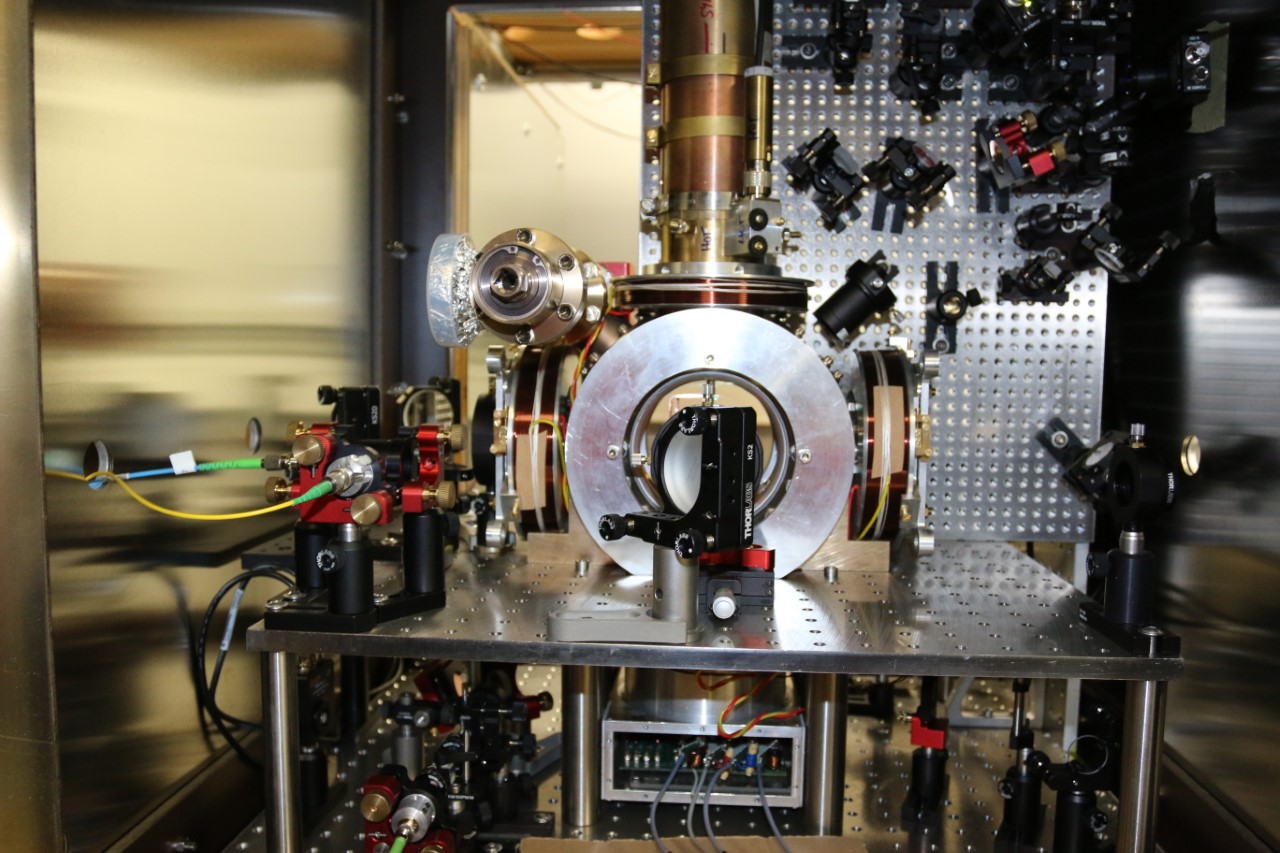Apr 13, 2023
Optical quantum clocks – a path to refinement and redefinition of the unit of time
Location:
Brno, Czech Republic
Time:
Apr 13, 2023
7:00 pm (GMT+01:00)
Audience:
- General public, students
Organiser:
Institute of Scientific Instruments of the CAS
Type of event:
In-person event

The use of quantum effects for such a practical area as precise timekeeping has been with mankind for more than half a century. The accuracy of synchronisation of sensor networks, GNSS positioning systems, data transmissions or official time is derived from a unit of time. According to the current international definition of the SI metric system, “one second” is derived from the change in the energy state of the Caesium atom between selected levels of its hyperfine structure, i.e. between its two quantum states. A representative of the device that generates the time markers of a unit of time is then the traditional atomic clock based on the principle of the Caesium fountain, whose accuracy reaches up to sixteen valid digits.
However, the development of quantum technology has already made it possible to construct clocks that achieve up to a thousand times higher accuracy. The international metrology community has been working intensively on so-called optical quantum clocks, which use optical transitions in laser-cooled atoms or ions of various kinds (e.g. Sr, Yb, Ca, Al, Mg or Hg) followed by frequency synthesis techniques to obtain a “one-second” signal.
However, it turns out that optical quantum clocks based on these kinds of atoms or ions exhibit different unique parameters and it is impossible to determine exactly which quantum clock is the best. Therefore, efforts by the metrology community are directed at linking optical quantum clock laboratories into an international optical network that allows real-time comparison of the stability of clocks of different types, while generating an average “one second” of the highest accuracy. This paves the way for the redefinition of the unit of time, which is planned for around 2030.
The Czech Republic is not lagging behind in this area of research. The Institute of Scientific Instruments of the CAS (ISI) and the Department of Optics of Palacký University are operating the first Czech experimental optical quantum clock in a joint laboratory at the ISI in Brno. At the same time, ISI and the CESNET association are already operating part of the future international optical network CLONETS, on which the first experiments comparing the accuracy of optical quantum clocks are underway.
For more details, visit: http://www.isibrno.cz/cs/mezinarodni-den-kvantove-fyziky-1
*Disclaimer: The World Quantum Day is not responsible for the accuracy of the information submitted about this event.